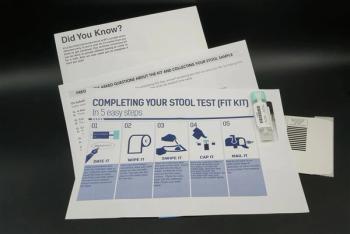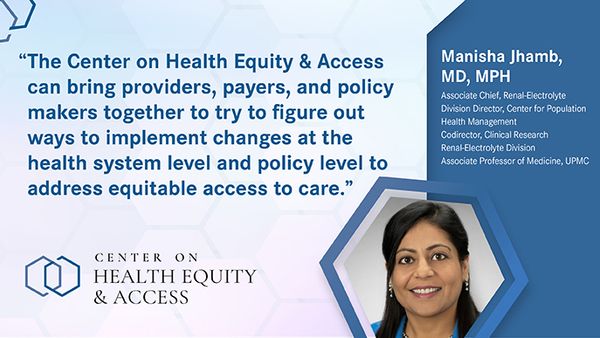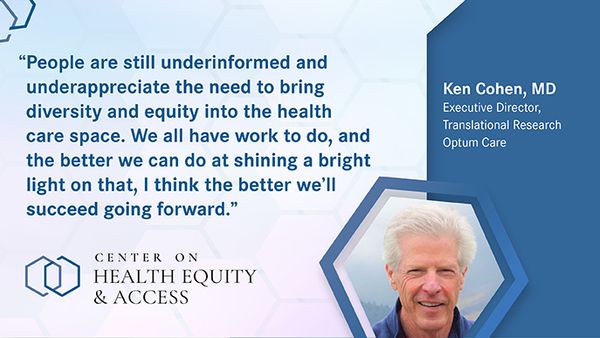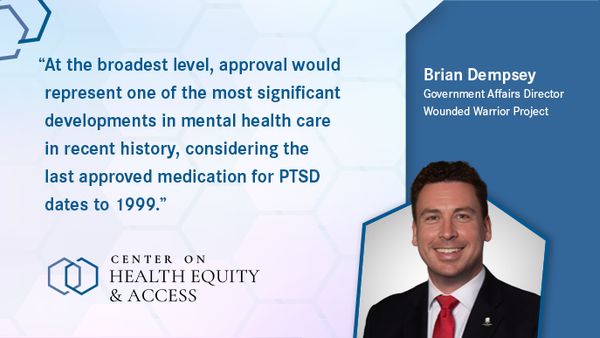
Center on Health Equity & Access
Latest News
Latest Videos

CME Content
More News

From the potential impact of tariffs to the World Health Organization's year-long campaign launch focused on improving maternal and newborn health and addressing preventable deaths, here's the latest from the Center on Health Equity & Access.

New study finds adults with stable housing have slightly better blood sugar and blood pressure levels.

Galen Shearn-Nance, BS, and Johnie Rose, MD, PhD, of Case Western Reserve University, acknowledge key limitations of their study and prioritize areas for further research.

Coverage from the Nashville Regional meeting of the Institute for Value-Based Medicine.

No significant differences in treatment or outcomes were found between most Medicare Advantage (MA) and fee-for-service (FFS) beneficiaries with breast cancer, but Black patients with FFS Medicare were less likely to receive standard treatment.


Experts discuss how to evaluate and communicate the return on investment for continuous glucose monitoring (CGM) coverage to overcome cost-related barriers, explore strategies other payers could adopt based on the success of Metro Nashville Public Schools' initiative to provide CGM devices without prior authorization, and examine the impact of removing prior authorization requirements on appropriate patient selection and utilization, along with which aspects of this model could be adopted by other employers and the resources needed to implement similar programs.

Experts discuss the disparities observed in continuous glucose monitoring (CGM) access and utilization with Healthcare Effectiveness Data and Information Set (HEDIS) now stratifying 22 measures by race and ethnicity, and how these insights can inform strategies to improve health equity, along with successful strategies implemented to improve CGM access and technology literacy in underserved communities.

A series of new studies from the National Kidney Foundation Spring Clinical Meeting exhibit the association between impaired kidney function and prolonged hospital stays, higher charges, and greater resource utilization.

As Medicare Advantage (MA) enrollment grows, Johnie Rose, MD, PhD, Case Western Reserve University School of Medicine, underscores the importance of ongoing research into outcomes for MA beneficiaries vs fee-for-service (FFS) Medicare beneficiaries.

An expert on the intersection of HIV and menopause, Bridgette J. Picou, LVN, ACLPN, The Well Project, explains the importance of overcoming siloed care for women living with HIV and going through menopause.

A report published today by Shatterproof and The Bowman Family Foundation underscores the potential of the collaborative care model to lower suicide risk across diverse patient populations and health systems.

NCCN Data Find Racial, Socioeconomic Disparities in Quality of Care for Metastatic Pancreatic Cancer
New data from the National Comprehensive Cancer Network (NCCN) reveal that socially vulnerable and minority patients with metastatic pancreatic cancer are less likely to receive recommended treatments and achieve longer survival.

Patients with advanced epithelial ovarian cancer who were non-Hispanic Black, older, had lower household income, resided in nonmetropolitan areas, and were unmarried had higher odds of refusing cytoreductive surgery.

Experts agree that the expansion of telehealth was one of the most significant positive outcomes of the COVID-19 pandemic.

Hospitalized patients with opioid use disorder (OUD) who received in-hospital addiction consultation services were more likely to receive evidence-based OUD care, a new study found.

Patient navigation and mailed outreach improved colorectal cancer screening rates in rural clinics, but follow-up colonoscopy participation remains low.

Taxing imports to the US could spell major consequences for health care prices, innovation, and access, as a great amount of medical supplies and ingredients are manufactured overseas.

World Health Day 2025 highlights the importance of improving maternal and newborn health, emphasizing the need for quality care and investment in regions facing high mortality rates.

The Center on Health Equity & Access delves into the latest policy shifts, research, and expert perspectives on advancing equity and improving access to care.

Clinical approaches to non-Hodgkin lymphoma in younger and older patient groups generally do not differ, according to Andrew Evens, DO, but he emphasized the need for deeper clinical insights into potential biologic differences in younger oncology patients.

Nearly 1 in 9 adults are living with diabetes, according to new research by the International Diabetes Federation.

Addressing the accessibility and high costs of chimeric antibody receptor (CAR) T-cell and bispecific therapies is crucial for maximizing their impact in multiple myeloma (MM).

Adolescent and Young Adult Cancer Awareness Week serves as an opportunity to shed light on the special considerations and experiences of younger oncology patient populations.

Three decades of data from the Global Burden of Disease Study were analyzed for trends in global, regional, and national burdens in pulmonary arterial hypertension (PAH).


















